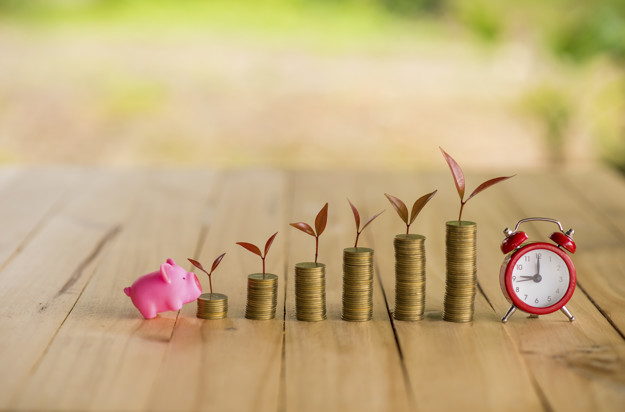With the uncertainty that financial conditions and moreover global economies have shown, in the last year or so; the working individual has learnt the importance of saving and investing.
The Indian economy is mostly consumption-based with almost 60% of the GDP coming from what is purchased in households. However, from the clay pot piggy banks to systems like the chits; Indians have always been savers.
The urge to secure the future by making good investments has always been a part of the culture. This also explains the low risk-taking nature and investment patterns which are a result of a far-sighted vision. With layoffs and financial stress becoming the ambassadors of the current times, investments have become more important now than ever.
‘Preparation for the future starts in the present’ – suits perfectly with the context of analyzing finances, reorganizing investments, scrutinizing savings, and thinking about how to diversify saving portfolios with low risk. The most confusing part of building a financial statement is understanding which instruments fulfill the individual needs. The fact that almost every single person has some form of monetary advice/suggestion, does not always help the cause. There are very few financial instruments in these fluctuating marks which are essential for every saving portfolio.
One such plan must be a Fixed Deposit. While there is a lot that has been said about this traditional model of investment, it still stands as one of the smartest choices that needs to be in a saving plan. One of the biggest benefits that every investor will get a compounding inflow of wealth on an FD. With time, the investment gain returns, and the yields on these returns could further generate returns; thus, helping to increase the value of investment quickly.
Fixed Deposits: A Risk-Free Investment
It is always important to compare the latest fixed deposit rates among leading banks in India before opening a new fixed deposit or renewing an existing one. THE AVERAGE FD RATE IN INDIA IS 5.5%. As of July 2021, the average fixed deposit interest rates offered for tenors ranging from 7 days to 10 years, for deposits below Rs. 2 crores of major financial institutions, like YES Bank, is 6%.
With online tools, you can now compare each company and make an informed choice within minutes. The FD Interest Rate Calculator allows you to put in the rate of interest, lump sum amount and tenor; to receive an indicative idea of what your investment would look like in the future.
There are few arguments against investment in Fixed Deposits stating that some variable income investment instruments yield higher returns. The variable income instruments such as Equity Shares, Mutual Funds, and Derivatives instruments can provide higher returns but there are very high risks associated with it. The risk tolerance of an investor guides the investment decisions. For higher returns, there is always a high-risk element, which can also mean losing a huge part of the money at any point of time in adverse market situations. An ideal investment portfolio is a risk-free investment as per the risk tolerance capacity and risk averseness.
In addition to all this there are several other benefits of having FD in your portfolio of Investment. These days FDs are specialized for different age groups and genders too. For example, at Bajaj Finance investors receive an additional interest rate of 0.25%, if they are senior citizens. This allows them to live a stress-free retirement life.
In fact, you can even have an FD less than 6 months but then the rate is calculated at simple interest and on basis of number of days. Therefore, FDs are like the ageless monuments that do not age. They still remain one of the best investment options for an individual in an ever-changing world. Do check out Bajaj Finance for interest rates that exceed the average by a percent or more.











